Every summer, the Fourth of July brings the United States a fanfare of fireworks, flags, red, white & blue bunting, and … if you live in the South, barbecue. In my home, that usually means smoking Fourth of July ribs. Along with a heavy helping of Fourth of July baked beans.
That’s right, in the Carolinas and elsewhere across the South, low and slow Fourth of July barbecue has been a tradition since the American revolution. Going back to the 1800s, citizens across the South have celebrated America’s birthday with parades, public speeches, patriotic music, and to conclude the party … a great feast with smoked meat at the centerpiece.
Of course, Independence Day is a uniquely American tradition. Other countries don’t mark the birthday of the USA unless maybe you are an American living elsewhere around the globe. We discuss some of the history in this interview with food journalist Hanna Raskin.
But what if you are an ex-pat outside the U.S., trying to recreate your favorite Fourth of July ribs, complete with Southern trimmings? Better yet, what if you are an American in the foreign land … of our former oppressors!? You can’t celebrate American independence with fish and chips. Do the British barbecue? Do they even know how to smoke meat, much less make melt-in-your-mouth ribs?
Turns out, the British may not barbecue, but they’re within easy reach of some of the best pork for Fourth of July ribs. Our Carolina BBQ connection in England, Jim Ernst, is wowing the British with his barbecue. He shares the lowdown on making Iberian baby back ribs on his Kamado Joe using not-so-secret weapons – the Joetisserie and the Rib-O-Lator!
British Barbecue Enlightenment, Courtesy Carolina
Jim started smoking meat low and slow after an introduction to barbecue and a bit of persuasion from a friend, coincidentally, backyard barbecue expert Jeff Osborne. Recently arrived from New York at the time, Jim admits a bit of initial barbecue ignorance. It was short-lived, and quickly, he found his way to perfecting a few favorite barbecue traditions – like Fourth of July ribs.
Jim became such a fan of meat smoking and outdoor grilling that when his career moved him to the United Kingdom, he made sure his relocation package included moving his Kamado Joe. For his new home? Outdoor garden space required. Now he’s smoking his London neighborhood into a drooling frenzy.
And since he didn’t leave polite manners in his last North Carolina home, Jim invites his English neighbors to enjoy his Southern spoils from time to time. Could his dreams of a side hustle catering events for other London-living “Yanks” bring flavor to an island that sorely lacks it? Because make no mistake, Jim confirms, British barbecue is not a thing (at least not in the same low and slow sense. Think burgers and dogs).
Iberian Pork: Baby Back Ribs for the British Barbecue
What the British lack in authentic barbecue, they make up for in access to premium pork products. Specifically, Iberian pork. After years spent preparing baby back ribs, a move to Britain elevated the Fourth of July ribs game, thanks to the “Wagyu” of pork.
Black Iberian pigs are native to the Iberian Peninsula (Spain and Portugal). They have a “good appetite and a propensity to obesity, including a great capacity to accumulate intramuscular and epidermal fat.” As Jim points out in the podcast, a traditional pig diet of acorns even gives the meat a nutty flavor.
See that? Intramuscular fat. You want that. In low and slow barbecue terms, it keeps the meat moist. That marbled fat renders during the cook, melting flavor into every bite of baby back ribs. It’s no surprise that Iberian pork is top quality, in high demand … and more accessible to come by in Britain than in the United States. (Pigs flying to London: 1,000 miles, er, 1,609 km. Carolina? 6437 km.)
And Barbecue sauce? Not as easy to find. Jim smuggles a bottle or two back to London after most State-side trips. A favorite: Sticky Fingers Memphis Original.
Making Fourth of July Ribs for the British Barbecue – or Any Occasion
Same-day preparations for his Iberian baby back ribs begin with a coat of peanut oil on the meat. (Olive oil works for the peanut-allergic.) Next, the ribs get a light coat of brown sugar. Applying the sugar first helps avoid clumping within the rub, and it creates a more even layer, Jim says.
After the sugar, cover the meat in a traditional Carolina rub – featuring salt, cumin, cayenne pepper, and a few other ingredients, including granulated garlic and onion. (The British do not pulverize spices smaller than granules, apparently.) See the recipe below.
With his meat rubbed, Jim readies his Kamado Joe in the garden (or back yard) outside his Hampton Heath (or park) home. (The British use funny English.) For the Big Joe, reaching the desired heat of 225 degrees takes about an hour (That’s Fahrenheit. In England: 107 Celsius).
The ribs cook for five hours while indirect heat, cherry smoke, the rotisserie, and the rib-o-lator do the work. Critical to this Fourth of July ribs recipe is that rotisserie. Jim contends that rotating the meat keeps air and smoke circulating, allowing maximum smoke penetration for all surfaces.
Three hours into the cook, mist the meat every half hour with your favorite mop concoction. In England, this requires a coffeemaker, your rub, and a pickle-juice substitute. (Because the English gherkin just ain’t the same.)
Mr. Mister Adapts to British Barbecue Ingredients
Granulated versus powdered spices. Fahrenheit and Celsius. Miles. Kilometers. Naturally, there’s a difference between a quality dill pickle in the U.S. and an English gherkin. I‘m not sure what the difference is, but Jim says it is enough to force a substitution in his mop recipe.
That means apple cider vinegar, apple juice, or a similar tangy flavored liquid goes into Jim’s coffeemaker for a barbecue brew. Dump your favorite rub into the filter basket (with a filter), and cook up a decanter of barbecue mop.
Applied with a spray bottle, or “mister,” every 30 minutes over the last couple of hours of cooking, the mop aids meat moisture. It also helps give the outside meat a tangy bite that balances nicely with the savory nuttiness of the Iberian pork.
Here’s a Carolina Rub recipe to try in your coffeemaker.
Jim’s Carolina Rub
1/2 cup paprika
1/2 cup kosher sea salt
1/2 cup granulated garlic
1/2 cup granulated onion
1/4 cup chili powder
1/4 cup cumin
2 tablespoons black pepper
2 tablespoons dry mustard
2 tablespoons chili powder
1 tablespoon cayenne pepper
1/2 cup brown sugar (optional)
The recipe produces about a Mason jar full. Keep in mind for a rub, Jim advises that apply brown sugar separately to avoid clumping. If you want the sugar in the rub, use a 1/2 cup as listed. For the mop concoction, brew in a coffee maker all ingredients with dill pickle juice, apple cider vinegar, or apple juice.
Get the Rest of the July Fourth Ribs Story
For all the details on Fourth of July ribs, don’t miss The Low & Slow Barbecue Show episode from England. Jim shares his tips for preparing barbecue among the British and some of his favorite stories about barbecue success and failure.
Listen, and you also get tips on his must-have tools for a low and slow barbecue cook. Jim also shares his opinions on his Carolina barbecue favorites. Eastern or western? Sweet or spicy? The barbecue state in the U.S.? Tune in for the answers, but don’t expect a definitive decision on barbecue’s best part of speech. The British still aren’t sure whether barbecue is a verb or a noun.
About the Author

Smoked meat, barbecue enthusiast, news journalist, and sports radio broadcaster Michael “Chigger” Willard collects a storybook of life captured through the lens of people he encounters. With a perspective seasoned by small town life in the Deep South, he dedicates conversations to uncovering savory nuggets of information, light-hearted moments of humor, and revealing glimpses of humanity.
Want more?
- Podcast Episodes
- Barbecue Blogs
- BBQ News & Recipes
Subscribe to The Lowdown BBQ Newsletter!


